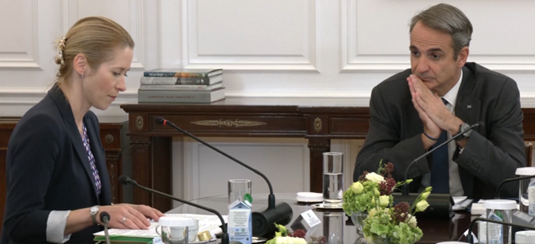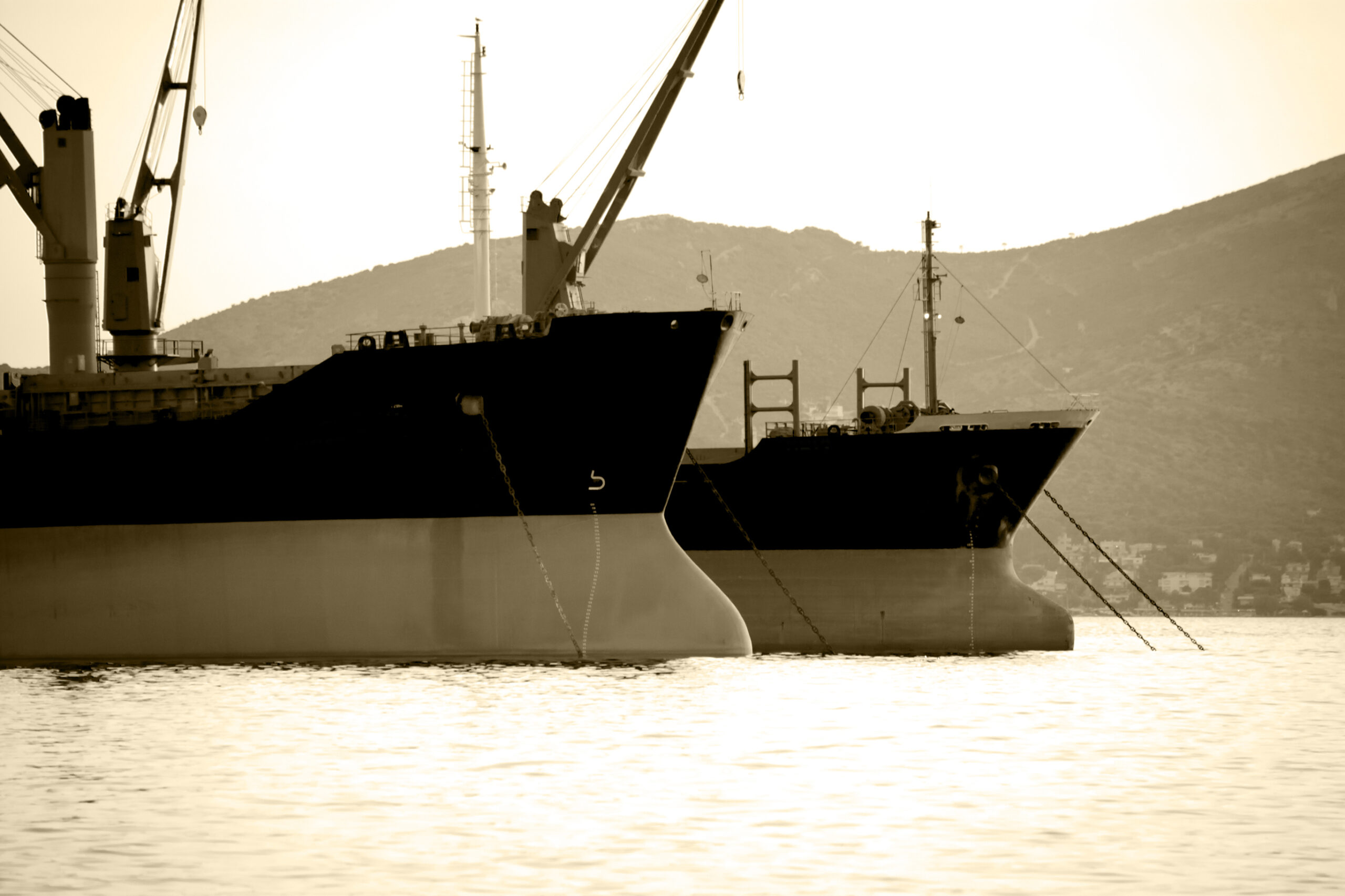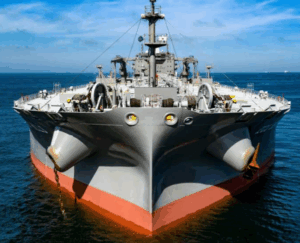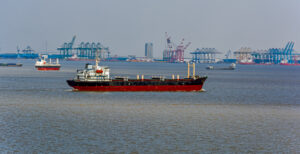
Image: Screenshot from video
The European Union on Friday called on Greece to step up its efforts to curb the activities of the “shadow fleet” used by Russia to export oil, circumventing European sanctions.
“We can all do more to close down the networks of the shadow fleet as well,” the EU high representative for foreign affairs and security policy Kaja Kallas underlined at a joint press conference last week with Greek foreign minister Giorgos Gerapetritis in Athens.
Kaja Kallas stressed that “more Russia’s revenues come from oil, and this comes from their shadow fleet,” which helps Russia evade sanctions on oil exports.
She also added that “we need to do more to combat Russia’s circumvention of sanctions, that we also discussed today.”
The European Union is increasing pressure on Greece, calling for more decisive measures against the so-called “Russian shadow fleet.”
Greek shipping remains the largest in the world with 5,691 ships, accounting for around 20% of the global capacity in deadweight tonnes – dwt, according to the annual 2024-2025 report of the Union of Greek Shipowners published in August.
In accordance with the UGS report, the Greek-owned fleet represents 20% of the global and 61% of the European Union’s fleet.
The Maritime AI™ company Windward analysis shows that fewer Greece-owned ships are tracked lifting Russian crude since August after the EU first flagged the 15% lower price cap would be introduced from September.
Under the price cap, Western marine service providers including charterers, shipowners, insurers, banks, and oil traders can’t ship Russian crude to third countries without attestation it was bought below the cap.
Greek shipping companies, which have long dominated the global tanker trade, maintain that their operations are fully compliant with international law.
They argue that they conduct due diligence on buyers and adhere to all regulations.
Kallas Meeting and Opening Remarks with Greek PM
Kallas, also met last week at Maximos Mansion, in Athens, with the Greek prime minister Kyriakos Mitsotakis.
During the meeting, the two officials discussed international and regional developments, focusing on Ukraine, the Western Balkans, the Middle East, and the Eastern Mediterranean.
The EU high representative referred to the new sanctions package, that was adopted just two weeks ago, which will increase the pressure on Russia’s economy.
“The sanctions are really working,” she said, highlighting that “most of the Russia’s income really comes from the shadow fleet of dirty tankers and these pose a real threat to our seas as well, when it comes to environmental worries.”
“There are now over 550 ships covered by sanctions, but this has not killed the business model yet. I know that this is also something that we need to discuss further, how we can really increase the cost for the Russians to sail their shadow fleet and not really affect our ships here,” Kallas said addressing Mitsotakis, while expressing her gratitude for the contribution of ships offered by Athens to naval operations in the Mediterranean and Red Sea.
EU Sanctions to Shadow Fleet
The EU sanctioned recently an undisclosed number of maritime registries providing false flags to shadow fleet vessels, allowing their continued operation by creating a fraudulent impression of compliance with certification requirements.
In its 19th package of sanctions against Russia, the European Union is targeting maritime registries that helped shadow ships hide their identity using fake flags.
The European Union also announced a new raft of sanctions against Russia targeting 117 vessels – on a global basis – from Moscow’s “shadow fleet,” bringing the total to 557 ships, and banning imports of Russian liquefied natural gas (LNG) as of 1 January 2027 for long-term contracts, and within six months as of the entry into force of the sanctions for short-term contracts.
The ban on imports of Russian liquefied natural gas (LNG) into the EU and the further clamp-down on the so-called shadow fleet represent the strongest sanctions yet on Russia’s crucial energy sector.
An additional 117 vessels have been made subject to a port access ban and a ban on the provision of a broad range of services related to maritime transport, bringing the total number of designated vessels to 557. These measures target non-EU tankers that are part of the shadow fleet circumventing the oil price cap mechanism.
The 19th package also introduces a ban on reinsuring vessels belonging to the shadow fleet, further constraining their ability to operate.
The move comes after U.S. president Donald Trump’s administration announced new sanctions against Russia’s oil industry that are aimed at moving Russian president Vladimir Putin to the negotiating table and ending Moscow’s war on Ukraine.
It is a broadened effort to force president Vladimir Putin to negotiate an end to the war, though Russian foreign ministry dismissed the measures, claiming they are largely ineffective.



